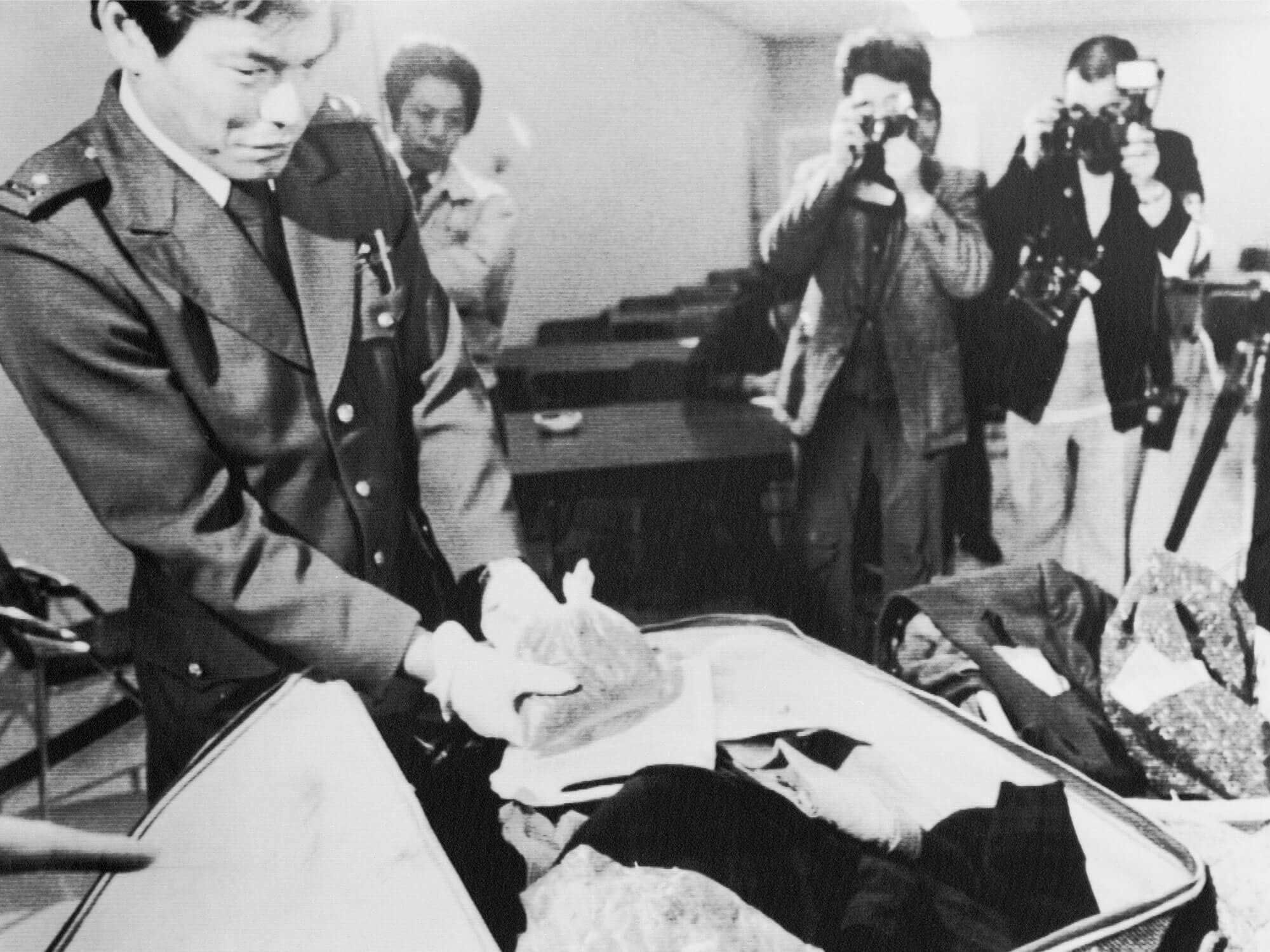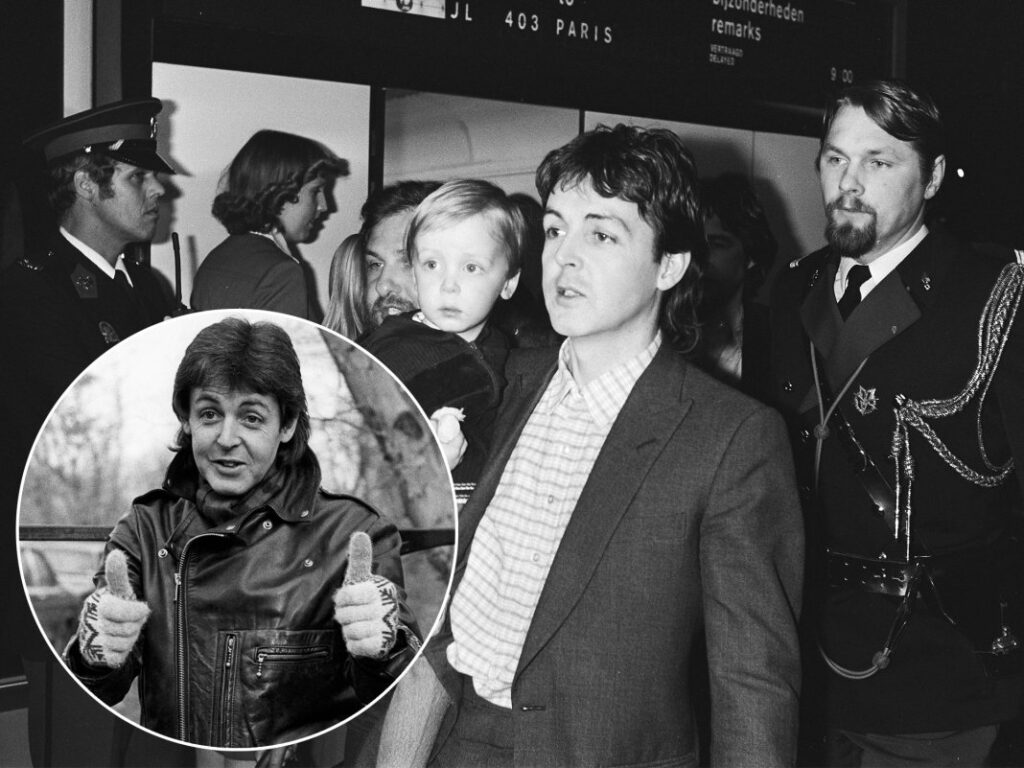While the matching bowl haircuts and boy-next-door charms might fool you, The Beatles were prone to their fair share of rock ‘n’ roll debauchery – need we mention 1967’s LSD-inspired Sgt. Pepper’s Lonely Hearts Club Band? In fact, Paul McCartney very nearly earned himself a seven-year prison sentence back in 1980 for smuggling marijuana into Japan.
McCartney opens up about his prison scare in his new book, Wings: the Story of a Band on the Run. As he puts it, the weed was “excellent”, so it was worth the risk. “I was out in New York and I had all this really good grass,” the Beatles legend recalls [via The Sunday Times]. “We were about to fly to Japan, and I knew I wouldn’t be able to get anything to smoke over there. This stuff was too good to flush down the toilet.”
Having just been in America, where President Carter was considering decriminalising cannabis, McCartney thought marijuana was “no big deal”. He’d also done plenty of ‘harder’ drugs in the past, notably “seeing God” on Dimethyltryptamine (DMT) during The Beatles’ heyday. The response from the Tokyo airport officials was a massive culture shock.
“It was the maddest thing [I’d done] in my life – to go into Japan, which has a seven-year hard-labour penalty for pot, and be so free and easy,” he recalls in horror. “I put a bloody great bag of the stuff right on the top of my suitcase. Why didn’t I even hide it in a pullover?”
McCartney’s daughters Stella and Mary were also present at the drugs bust. Mary chimes in with her own memory of the event: “I just remember them saying to Mum and Dad, ‘Whose is this?’… [then they looked] at each other, going, ‘Which one of us is going to do this? Because one of us needs to stay with the kids.’ Dad said it was him, and then they took him away.”
Though, Stella adds that “even a nine-year-old could have hidden skunk weed better” than her father had.
 A customs officer inspects one of the plastic one of the plastic bags containing marijuana which hidden inside one of Paul McCartney’s luggages after he was arrested for illegal possession of marijuana at New Tokyo International Airport in Narita 1/16. Credit: Getty Images
A customs officer inspects one of the plastic one of the plastic bags containing marijuana which hidden inside one of Paul McCartney’s luggages after he was arrested for illegal possession of marijuana at New Tokyo International Airport in Narita 1/16. Credit: Getty Images
The very same evening, McCartney confessed and was arrested for drug possession. “I apologised for breaking Japanese law,” he says. “It probably didn’t help that I had more than I could get through in a month… I had to go through my whole life story – which schools I went to, my father’s name, our address, my income. I even had to tell them about my MBE medal from the Queen.”
In the West, rockstars tend to be pretty open about their drug habits. Tony Iommi has gone on record admitting that Black Sabbath had a dealer show up “every day” during the recording on 1972’s Vol. 4, and The Rolling Stones were also prone to the odd acid trip. But, as McCartney puts it, the Japanese response was incredibly serious.
The musician had been travelling to perform in Japan with his band Wings. Overnight, every single tour poster was torn down. “Every hundred feet there had been a poster saying, ‘Wings – the greatest rock band in the world visits Japan 1980,’” Wings drummer Steve Holley notes. “They were everywhere… it was inestimable how many there were. And in the morning, they were all gone. The radio stations went silent, too. They wouldn’t play anything.”
Considering the severity, McCartney even thought his family would have to live in Japan to still see him behind bars. But he tried to remain positive. “I couldn’t sleep for the first three days…” he continues. “I had to share a bath with a bloke who was in for murder. I was afraid to take my suit off in case I got raped. But I’d seen all those prisoner-of-war movies and I knew you had to keep your spirits up.”
In order to “keep spirits up” McCartney did what he does best – he performed. “I’d organise singsongs with the other prisoners,” he admits. “There were guys in the next cell and we tried to communicate. I was trying to learn a few words in Japanese, and I could hear people saying konnichiwa (hello). So I turned that into “Connie Chua”. Like a high-school girl, Connie Chua. I could say arigato, thank you, but I couldn’t say much more.”
Despite only being in the prison for nine days, McCartney would write the book Japanese Jailbird reflecting on his experience. And, even though it was a stressful experience, prison guard Yasuji Ariga noted that McCartney remained “very polite and made a good impression on the guards”.
“I was happy to leave [after nine days], but I’d made a couple of friends in there so the parting was a little sad,” McCartney admits. “As I walked free, I was shaking hands with these prisoners through the letterboxes of their cells.”
However, the arrest didn’t seem to sour McCartney’s taste for marijuana. Following on from the arrest, McCartney would call for cannabis to be legalised four years later in 1984. Speaking to press outside of a London Airport, he said: “I don’t believe [smoking cannabis] is a terribly harmful thing to do… cannabis is a whole lot less harmful than rum, whiskey, nicotine or glue – all of which are perfectly legal. I’d like to see it decriminalised, because I don’t think, in the privacy of my own room, I was doing anyone any harm whatsoever.”
McCartney’s new book, Wings: the Story of a Band on the Run, is out 4 November. McCartney will also be releasing a definitive collection of Wings tracks on 7 November.


AloJapan.com